The Photo before the Storm: Peace Talks Already Failed
By Ramzy Baroud
A picture is not always worth a thousand words. The recently released photographs of Palestinian and Israeli leaders in Washington during their first direct talks in many months certainly don’t say anything new.
It was the status quo at its best, a mere procession of regional and US leaders before hungry cameramen. The leaders promised “not to spare any effort” and praised the undeniable altruism embedded in the very concept of “peace”. Israeli Prime Minister repeated the martyr-like emphasis of past Israeli leaders regarding the “painful” compromises and sacrifices required to defeat the many obstacles standing before them. Mahmoud Abbas – with his expired presidency over a corrupt Palestinian Authority – smiled, shook hands and spoke unconvincingly about his hopes and expectations.
Jordanian and Egyptian leaders also attended. Their presence was purely an endeavor to mark a difference between this event and the last failed attempt at reaching a peace agreement. When late Palestinian leader Yasser Arafat and Israel’s Ehud Barak were herded into Camp David under the auspices of then President Bill Clinton, Arafat was left to fend for himself without any Arab backing. This left Barak, fully backed by the US, with all the cards. The process was a mockery then, as it is now.
Today’s badly staged talks are actually much less promising than the ones of July 2000. Barak had a considerably serious mandate, while Netanyahu runs a discontented coalition of largely rightwing fanatics. Arafat, although his popularity had dwindled, also represented a moral authority and a unifying figure among all Palestinian factions, including Hamas. Abbas, on the other hand, sits on the helm of hugely discredited and ineffectual band of contractors and self-serving politicians. More, Abbas operates with an expired mandate, and his cabinet members are handpicked to replace the democratically elected government of Hamas, whose members are either under siege in Gaza or held in Israeli prisons.
Needless to say, this latest round of peace talks is seriously lacking in legitimacy and goodwill.
Firstly, Israel has no interest in guaranteeing any positive outcome. It is hell-bent on carrying on with its colonization of the already disconnected West Bank and East Jerusalem. Netanyahu’s government intends on speeding up such efforts once the temporary settlement construction freeze expires, only a few days after the second round of negotiations resume on September 14-15. On the very first day of talks, Israeli troops also invaded parts of northern Gaza and expanded the so-called buffer zone by around 300 meters.
As for Abbas, the problem is compounded. His power is truly feeble in comparison to Israel’s political supremacy both in Tel Aviv and Washington, and also its near total control of Abbas’ own domain in the West Bank. Knowing this, one cannot be both realistic and still hope for ‘painful’ Israeli concessions. Still Abbas continues to hang around. He might feel he has no other option, as his absence would both chip away from his miniscule political worth and risk raising the ire of Washington, his greatest sustainer.
But even if the one-year-long talks miraculously yield an agreement, Abbas will not be able to sell this agreement to his own people. The aging leader is barely capable of uniting his own party, which is no longer the main player in Palestine’s political milieu. Today’s Fatah is a different Fatah to the one under Arafat in 1993. Its corruption has grown to the extent that it now functions as a self-serving welfare organization, whose members get richer through international handouts and business monopoly orchestrated by Israel.
Equally significant is the fact that yesterday’s ‘enemies of peace’ have become the legitimate parties that should actually be involved in any substantial talks with Israel. They are dismissed because they insist on a paradigm shift in how talks with Israel are conducted. They argue that any meaningful talks – especially between vastly unequal powers – must take place with a clear frame of reference, involving an even-handed third party, and predicated on the concept of ‘justice’ – not Kissinger’s deceptive ‘peace process’. The talks must also guarantee the welfare and security of the Palestinian people in the interim, through a long-term truce guarded by the United Nations. Peace talks held at gunpoint while the population is forcibly starved and besieged hardly promises any positive outcome.
What we can be sure of is that that the halfhearted peace attempt will garner nothing good. If an agreement is somehow concocted, it is doomed to fail. The Palestinian people, the absent but real party in any lasting solution, will simply not allow it. The Palestinian collective has the tendency to watch charades to their end, and then react at the opportune moment to defeat them. Almost every Palestinian revolt in the past has resulted from similar processes, the Second Palestinian Uprising of 2000 being the most pertinent example. When Arafat was being humiliated and forced into submission to US-Israeli diktats, Palestinians of all parties and from all sections of society rose in anger. Israel understood the revolt as a Palestinian attempt at extracting concessions and used unprecedented violence to quell their revolt. Many thousands were killed and wounded, and the rest is history.
If violence spirals this time around, it promises to be much worse than before. Those who cling to resistance in Palestine have been bolstered by the success of Hizbullah in Lebanon and Hamas in Gaza. More, they are emboldened by their political legitimacy as a result of the democratic elections of 2006. Predictably, Netanyahu will not shy away from interpreting Palestinian protests as a conspiracy to intimidate Israel. The problem with violence is that once it reaches a new threshold, it rarely retreats to old parameters. What took place in Gaza at the hand of the Israeli army in 2008-09 was frighteningly genocidal in its scope. Future violence is likely to stay within this category.
To avoid this, Washington’s strategists really need to reconsider the long-term consequences of their government’s policies. Obama’s choreographers might succeed in getting a few leaders to stand in perfect order before a crowd of reporters, but they will fail to contain the political chaos that will ensue when the talks fail, as they surely will.
– Ramzy Baroud (www.ramzybaroud.net) is an internationally-syndicated columnist and the editor of PalestineChronicle.com. His latest book is My Father Was a Freedom Fighter: Gaza’s Untold Story (Pluto Press, London), now available on Amazon.com.


















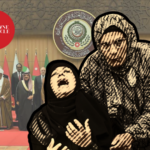
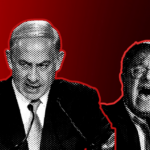

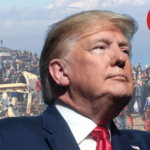
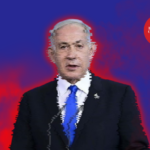

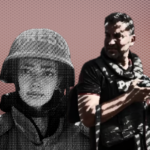
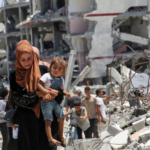









0 Comments